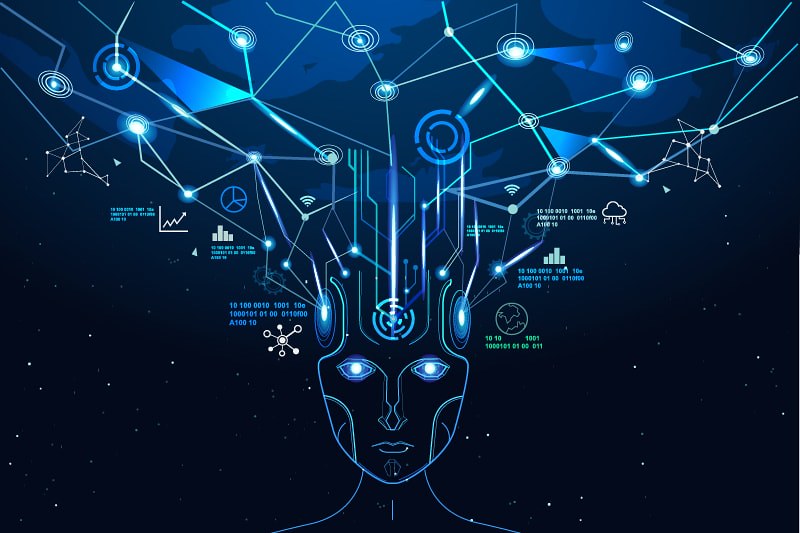In the landscape of modern innovation, artificial intelligence (AI) emerges as a groundbreaking force, redefining the parameters of possibility across various sectors. This digital renaissance, marked by the advent of AI, is not just altering the fabric of existing industries but is also paving the way for new realms of human endeavor. With its unparalleled ability to process, analyze, and learn from data, AI is breaking down complex problems, predicting outcomes, and making decisions with precision, thereby heralding a new era of efficiency, creativity, and innovation.
Transforming Healthcare: A Leap Towards Precision Medicine
The integration of AI in healthcare is revolutionizing patient care, diagnosis, and treatment, offering a more personalized approach to medicine. By leveraging vast datasets, Directorio IA algorithms can identify patterns and insights that humans may overlook, facilitating early detection of diseases such as cancer, Alzheimer’s, and heart disease. Moreover, AI-driven robotics are enhancing surgical precision, reducing recovery times, and minimizing human error, thereby significantly improving patient outcomes.
Empowering Education: Customized Learning Experiences
In the realm of education, AI is instrumental in creating dynamic, personalized learning experiences that adapt to the unique needs of each student. Through intelligent tutoring systems and adaptive learning platforms, AI is capable of identifying learning gaps and tailoring content accordingly, making education more accessible and effective. This technology also extends to administrative tasks, streamlining grading, enrollment, and scheduling processes, thus allowing educators to focus more on teaching and less on bureaucracy.
Revolutionizing Agriculture: Ensuring Global Food Security
AI’s impact on agriculture promises to transform the sector into a beacon of efficiency and sustainability. Through predictive analytics, AI helps farmers make informed decisions about planting, watering, and harvesting, optimizing crop yields and reducing waste. Drones and autonomous vehicles equipped with AI are monitoring crop health and soil conditions, ensuring precision agriculture that can sustain the growing global population.
Financial Services: Enhancing Efficiency and Security
In the financial sector, AI is redefining the way institutions operate, offering solutions that enhance efficiency, security, and customer service. From algorithmic trading and personalized financial advice to fraud detection and risk management, AI is at the forefront of financial innovation. Moreover, AI-driven chatbots and virtual assistants are improving customer experience, providing instant, 24/7 support for banking inquiries.
Manufacturing: The Advent of Smart Factories
The manufacturing industry is witnessing a paradigm shift with the introduction of AI into its operations, moving towards the concept of “smart factories.” These facilities utilize AI to monitor production processes in real time, predict equipment failures before they occur, and optimize supply chains, thus significantly reducing downtime and increasing productivity. The integration of AI in manufacturing not only boosts efficiency but also enables customization of products on a large scale, meeting the growing demand for personalized goods.
Despite its vast potential, the proliferation of AI across industries does not come without its challenges. Issues surrounding privacy, employment, and ethical considerations are at the forefront of the AI discourse. As AI systems become more autonomous, the need for robust ethical frameworks and regulations becomes imperative to ensure that these technologies are developed and deployed in a manner that benefits society as a whole.
Privacy and Data Security
The reliance on vast datasets for AI operations raises significant concerns about privacy and data security. Protecting sensitive information from breaches and ensuring that AI systems respect user privacy is critical in maintaining public trust in these technologies.
Employment and the Future of Work
The automation of routine tasks by AI and robotics is transforming the job landscape, necessitating a reevaluation of skills and job roles. While AI may displace certain jobs, it also creates new opportunities for employment in tech-driven sectors, emphasizing the need for reskilling and upskilling initiatives.
Ethical AI Development
The development of ethical AI systems that are fair, transparent, and accountable is essential in mitigating bias and discrimination. Establishing global standards and ethical guidelines for AI development and usage is crucial in harnessing its potential while safeguarding against its risks.
Conclusion
The pioneering potential of AI across industries heralds a future brimming with possibilities. As we stand on the cusp of this AI-driven era, the opportunity to reshape the world for the better is immense. By harnessing the power of AI, industries can achieve unprecedented levels of efficiency, innovation, and sustainability, paving the way for advancements that were once beyond our imagination.
However, realizing this potential requires a concerted effort from governments, businesses, and the global community to navigate the ethical and social challenges posed by AI. Through collaboration, regulation, and education, we can steer the AI revolution towards a future that maximizes its benefits while minimizing its risks. In doing so, we embrace the infinite possibilities that AI offers, unlocking a new frontier of human achievement and technological progress.

